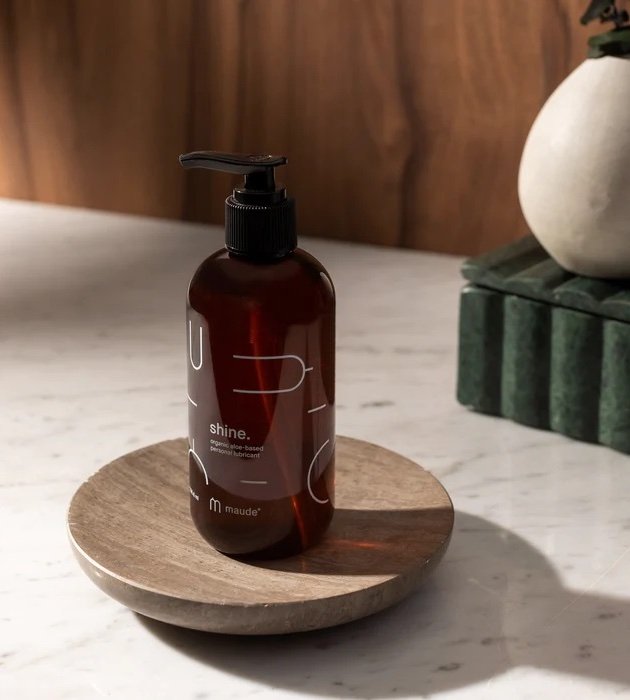
My Partner & I Went To Sex Therapy—What We Learned
“Best Sex Therapist Near Me”
I never thought I’d be searching for this, yet there I was, reading Yelp reviews about sex therapists in my city.
My partner and I had been struggling with sex since our wedding night five years prior. Neither of us had much experience leading up to marriage—we’d both been raised with religious sex ethics and made abstinence pledges during our youth. Even while engaged, kissing was the extent of our physical relationship.
Our wedding night saw two eager virgins fumbling to figure out what felt good and what didn’t, and it was mostly the latter. We’d perfected the art of pushing sexual desires away, and those desires didn’t come back just because we’d exchanged vows in a church or traded our abstinence rings for wedding bands. Nothing went as expected, and our hopes quickly dissolved as shame and disappointment replaced any possibility of pleasure.
“We couldn’t figure out how to turn our sexual desires back on after decades of suppressing them.”
In the months (and later, years) to follow, my partner and I learned to “escape” during sex. We couldn’t figure out how to turn our sexual desires back on after decades of suppressing them. Though we talked to friends and a handful of religious counselors, no one knew how to help us. Our questions and concerns—”Why does my body feel numb?” “Why do I feel shame after having sex?”—were met with blank stares and attempts at sympathy.
By our fifth wedding anniversary, I couldn’t do it anymore. My partner was fed up too. We couldn’t bring ourselves to read one more of Amazon’s recommended sex books, written by—surprise—mostly straight white men. The data and literature were antiquated, and we didn’t know where to find more progressive teachings.
That’s when I found Kamara—the number one sex therapist in our city—and scheduled a session.
On the first visit, I went alone—we’d had too many failed therapy attempts in the past, so I volunteered to vet her before we committed to regular sex therapy sessions. I don’t know what I expected to see when I walked into her office. Perhaps a dark room filled with toys and X-rated posters, like those video stores in strip malls, where the windows are covered in black tarp. But her office wasn’t any of those things; instead, it was warm and inviting with a velvet sofa pushed against the wall. Everything was drenched in sunlight, surrounded by art and books.
She invited me to sit down on the couch while she fished a legal pad and pen from her desk. Then she removed her heels, red polish peaking through from her nylons, matching her ginger bob, and cozied up in a chair. My eyes nervously wandered the room as I waited for a vibrator to fall off a shelf or to find a Playboy stuffed between the couch cushions.
“For my entire life, I’d been trying to be good and ‘pure,’ and I’d convinced myself that any sexual desires outside of marriage had tarnished me.”
For the entire hour, Kamara and I simply talked—we talked about my childhood and what I remember learning about my body. I was surprised at how easy it all came out, surprised to discover how much I’d been bottling and burying. For my entire life, I’d been trying to be good and “pure,” and I’d convinced myself that any sexual desires outside of marriage had tarnished me. It felt good to release my frustrations, to finally grieve for my younger self, the girl who’d been made to feel ashamed about sex and her body.
When the hour was up, Kamara and I hadn’t even broached the subject of sex with my partner—not really. I realized I wasn’t going to get a quick fix, not here, not with her. She wasn’t going to slip me a secret pill or potion that would heal the broken feeling in my body or in my bed. Instead, she slipped me a folded piece of paper with a list of sex books written by women and then scheduled a follow-up session.
That summer, I worked with Kamara, sometimes with my partner and sometimes alone. It was helpful to see her solo and work through my own shame-based sex beliefs, especially those about women and pleasure. Before those therapy sessions, I’d always felt ashamed (read: dirty) for having sexual fantasies or masturbating. Kamara helped me understand how it’s normal and healthy for women to have desires outside of penetrative sex.
When my partner came to sessions, he was also encouraged to challenge his former sex ethic, to reconsider why men often feel the need to perform or take control. These sessions together were some of the most vulnerable, as we practiced intimacy exercises, like extended periods of eye contact, learning to breathe together, and sharing aloud what kind of touch made us feel most safe.
“By the end of the summer, my partner and I were thinking about intimacy and our bodies differently and challenging our former worldview.”
By the end of the summer, my partner and I were thinking about intimacy and our bodies differently and challenging our former worldview. And for the first time in our marriage, we were communicating about our sexual wants and needs. More than that, though, we were finally being honest—with ourselves and with one another. Sex wasn’t always pleasurable, and that was the truth; it was a truth we continued living in even after our sessions with Kamara ended.
Sex therapy didn’t fix us, and it didn’t make our problems go away. But it did change our perspective. There was nothing “wrong” with us or our bodies. We simply had some work and healing to do, work that continues to this day. Except now, we have the tools and language to guide us on our journey.
I think we often go to therapy believing we’ll hand over our credit card, sit for a few sessions, and walk away wholly new. But therapy is actually the portal. It’s a brave space we enter, where we open ourselves up to buried traumas and wounds, things we didn’t know existed before. Or perhaps we did, but we didn’t want to bring them to the surface. In therapy, everything is excavated. And it hurts. It’s scary. But sometimes, the best thing we can offer ourselves is permission to share our truth. To a stranger. To our partner. To our reflection in the mirror. Sometimes we just need to vocalize our pain, allow someone else to witness it, and hold space for it.
Asking for help taught my partner and me that we don’t have to navigate sex challenges alone—challenges that are common and normal and the reason why you can do a quick google search and find a handful of sex therapists in your city. It’s okay to have questions or to need professional advice.
“Asking for help taught my partner and me that we don’t have to navigate sex challenges alone—challenges that are common and normal.”
The summer after that first appointment, I returned to see Kamara. By then, I was reading even more books and writing about sex and my upbringing in purity culture more publicly. I wanted to tell her how that was helping me process my experiences and find further healing.
It was strange being back in that room, noticing the shift in my body, how the way I spoke about sex felt so different. Were things “better”? I guess it depends on your definition. I’d argue yes. They were better because I’d found my voice. And my partner was on the path to discovering his too. We’d found a path, a road we felt was worth walking. No more dead ends. And that alone was worth every session.
Kayti Christian (she/her) is a Senior Editor at The Good Trade. She has a Master’s in Nonfiction Writing from the University of London and is the author of two substacks: Feelings Not Aside and blessed are the pure. She is currently on submission with her first memoir.





